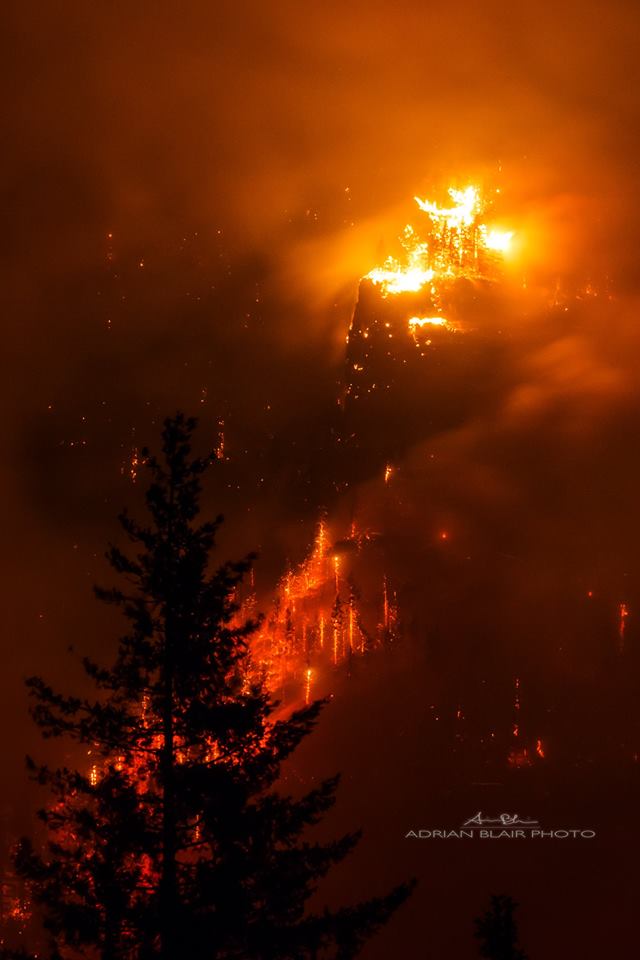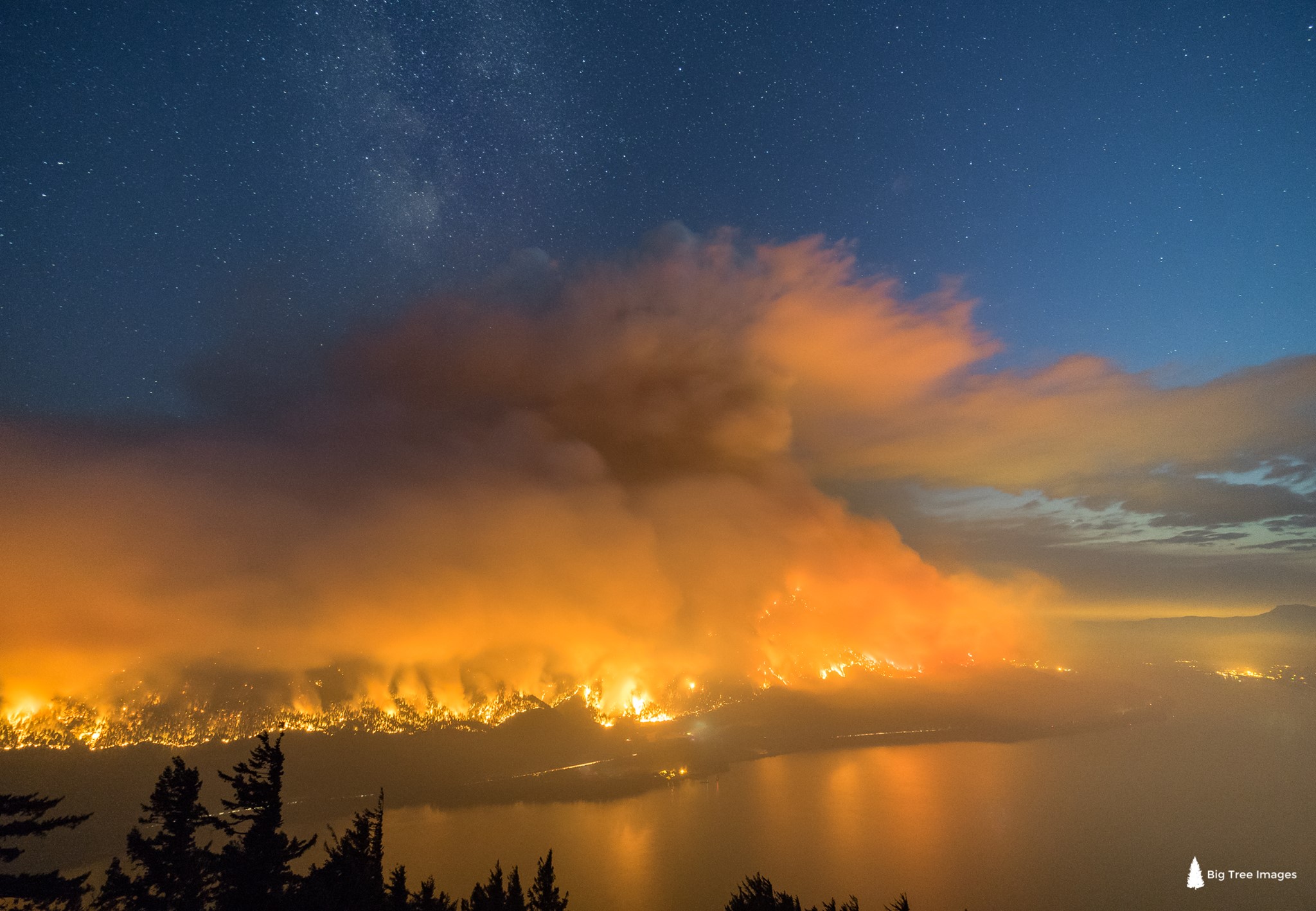Here on Mount Hood we are literally surrounded by forestlands. Our homes touch the edge of the Mount Hood National Forest and with increased recreational usage, and in light of the recent Eagle Creek Fire in the Columbia River Gorge, concerns about wildfires and overuse are increasing. Many people aren’t aware that our local village is less than 20 miles from the Columbia River Gorge and the Eagle Creek Fire boundaries. A wind in a different direction was the only thing that prevented that fire from becoming a direct concern to our community.
In this day and age recreation is increasingly becoming the purpose and primary use of the forest. The amount of people using trails and camping areas has increased dramatically on public lands especially in areas such the Columbia River Gorge Scenic Area and the Mount Hood National Forest. Local and Federal governments are trying their best to develop and to promote these areas to increase the usage and with this increased usage comes an increase in the impact on these areas. This makes our personal responsibility to and the assumption of stewardship of these lands important. We can’t have the attitude that it’s just the outdoors and that it will grow back or that the government will just repair or rebuild it. We must take care of it or lose it.
Most all of those who are coming out to use the forests are prepared, capable and aware of the responsibility involved in the use of these public lands, but there’s also an increased chance of having someone that’s not aware making mistakes or bad decisions that could prove costly or dangerous. There are many people who haven’t had the opportunity to live or to be taught the outdoor experience during their childhood. We can’t assume that everyone that is visiting the forest is aware of responsible forest use.

There are some basics that anyone that’s going to spend time in the forest should be aware of. These basics should be understood by anyone that goes out into the forest to recreate. The US Forest Service website has a wealth of information such as this that can be used to raise your awareness or of that of your friends and family before they go to play. They call it Responsible Recreation.
Camp responsibly. Use existing campsites or use an area without vegetation if possible. Keep the site small to minimize your impact. Don’t chop down or into trees. Camp at least 200 feet away from lakes, streams or wetlands. Use biodegradable soap or plain just water to wash with.
Answering nature’s call. Human waste can cause all kinds of problems if it’s introduced into the water. When you must go find a place that’s at least 200 feet from any water source. Dig a hole at least 6-8 inches deep to bury human waste. Pack out your toilet paper etc. Carry ziplock backs for this purpose. It’s kinda icky, but you’ll get used to it.
Be fire safe. First and foremost check with the ranger station in the area that you will be about any fire restrictions. Have a shovel, axe and a bucket of water available before starting the fire. Use existing fire rings. Remove flammable material from a ten foot diameter area around the fire. Keep fires inside of the fire ring. Don’t feed large logs into the fire. Never leave a fire unattended. Keep fires small and bring your own firewood. If you must collect wood from around your camp collect downed and dry wood only. Extinguish your fire properly. Poor water slowly into the coals while stirring with your shovel until the area is cool to the touch. Do not bury the fire as it can smolder for days. Never bring fireworks into the forest no matter the conditions.
Keep the forest creatures wild. Don’t approach wildlife. Don’t feed wildlife. Keep your dog completely under your control or on a leash to keep wildlife safe.
Don’t erase the traces of America’s past. Archaeological and culturally significant sites are protected and must be preserved for future generations. Anyone disturbing such areas can be dealt a substantial penalty if caught.
Be considerate of others. This should be a given in this society but unfortunately some folks don’t consider how their action affect others. Be courteous on trails and in the backcountry. Yield to others on trails. Take breaks and make camps away from trails and others who may be wanting to experience the solitude of the area. Keep noises down and let nature’s sounds and noises dominate.
And last but not least, don’t forget to take your camera.
It seems like a lot of do not do’s but trust that the do’s far outweigh the do not’s, so go out and enjoy the outdoors.
The photos for this article were provided by Adrian Blair of Adrian Blair Photography in Portland Oregon and Charlie Riter of Big Tree Photography in Hood River Oregon.

